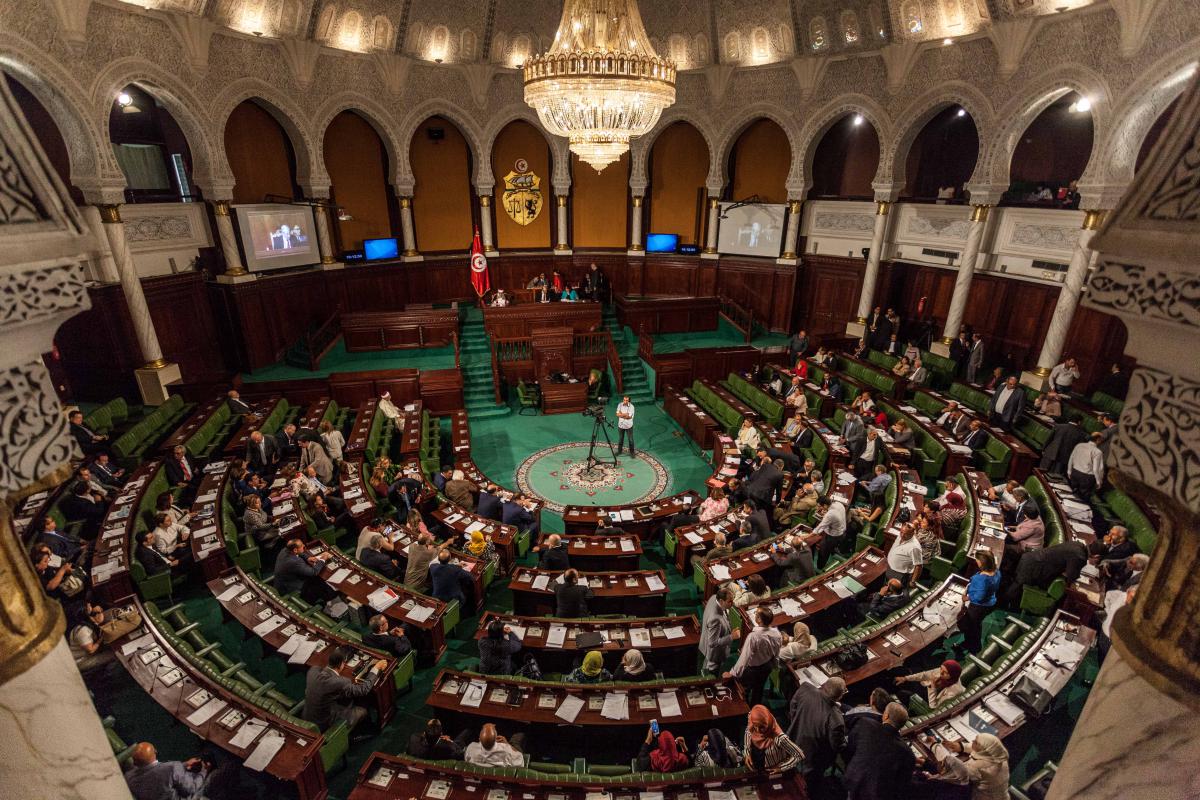Tunisia Needs a Constitutional Court as Soon as Possible

This fall, Tunisia’s parliament postponed two bills, for the eighth time in five years, meant to establish the country’s long-awaited Constitutional Court. Introduced in Tunisia’s constitution in 2015, the court hasn’t been formed because of parliament’s failure to elect three members. Without the Constitutional Court in place, Tunisian democracy 10 years after its 2011 revolution remains fragile and ill-equipped to regulate the distribution of power within the country’s political regime, particularly in times of crisis.
With the mission of balancing Tunisia’s political powers and protecting constitutional freedoms and human rights, the Constitutional Court is key to Tunisia’s democratic development.
Since 2011, Tunisia has faced several political crises and, each time, politicians have found themselves questioning the effectiveness of the country’s two-headed executive state. While the constitution divides power between Tunisian President Kais Said and Head of Government Hichem Mechichi, it does not make the responsibilities of each official clear, resulting in government paralysis when a crisis strikes.
During an interview in 2017, for example, the late President Beji Caied Essebsi claimed that the heterogenous nature of Tunisia’s political system ultimately weakens government action, making officials unresponsive to citizen priorities in times of need.
In response, Tunisia’s government designed the Constitutional Court to settle the power conflicts between Said and Mechichi and support the leaders to better address their constituents’ needs. In particular, the Constitutional Court is critical to strengthening the government’s ability to manage the country’s deteriorating economy, especially in the absence of a governing coalition in parliament. Without the court, Tunisia is also missing constitutional oversight on key international conventions such as the country’s accession to the Paris Agreement on Climate Change and the Arab Convention Against Corruption.
Under its Middle Eastern Civic Initiative (MERCI), the International Republican Institute (IRI) has partnered with Tunisian civil society organizations (CSOs) to support them in developing the organizational and financial capacity needed to advocate for participatory and representative governance in Tunisia. Right now, Tunisian CSOs lack the resources, technical capacity, internal structures and tools to be the dynamic advocates of governance and political stability that their country needs. But with the help of IRI, civil society groups are running advocacy campaigns to build awareness of the importance of a stable democratic process, which includes a Constitutional Court to regulate the separation of powers and protect citizens’ rights.
Tunisian civil society has long driven the country’s transition to democracy and has played a particularly important role in negotiating and debating the constitutional process since 2011. By empowering CSOs, Tunisia is in a better place to consolidate its democratic gains and achieve political, social and economic stability. Therefore, IRI remains committed to the continued advance of Tunisia’s democratic development by supporting the ability of civil society activists to become active agents of change and advocate for the needs of a successful democratic process.
Top